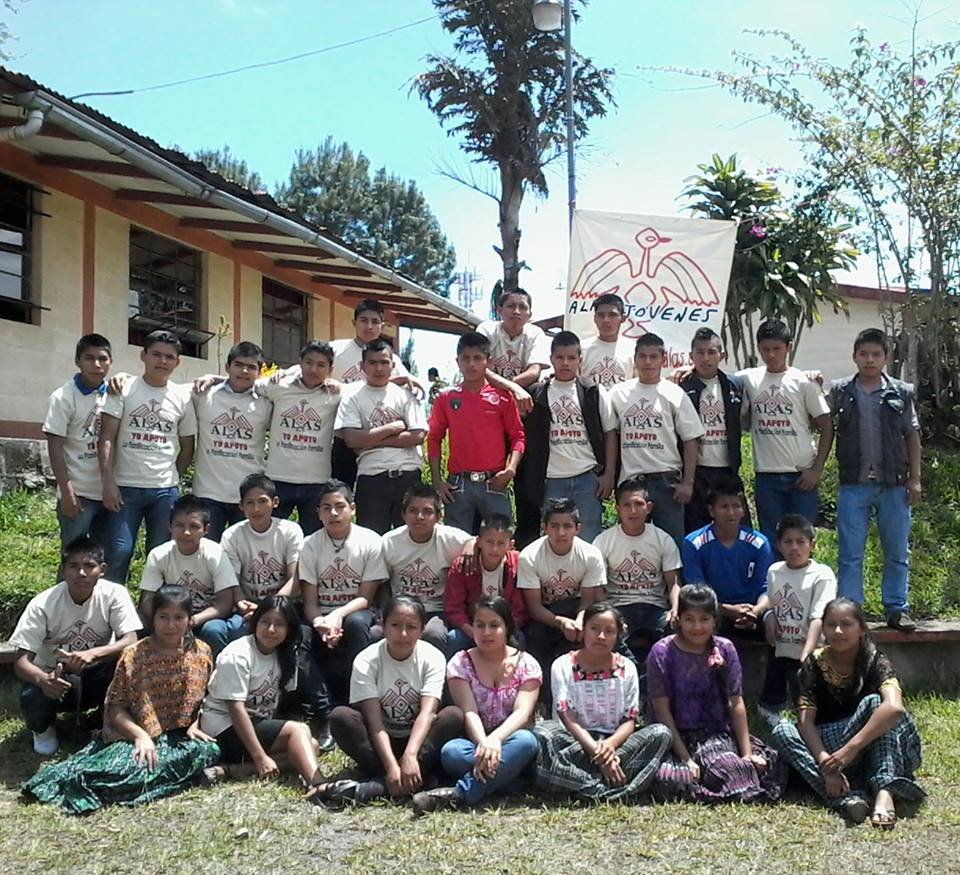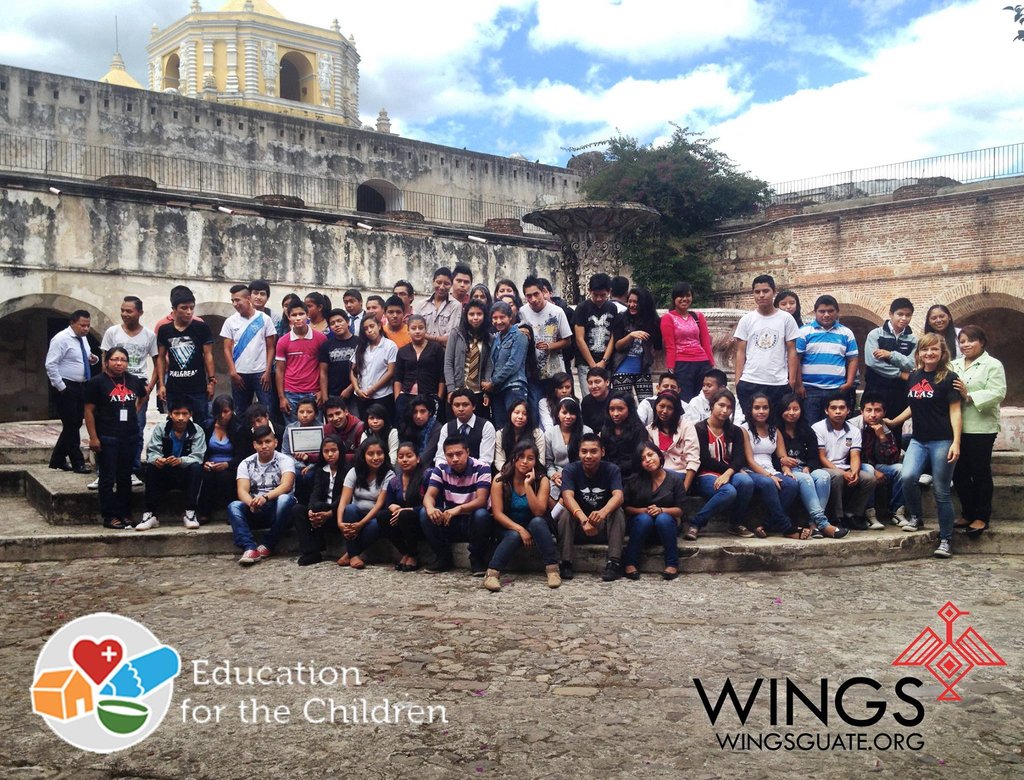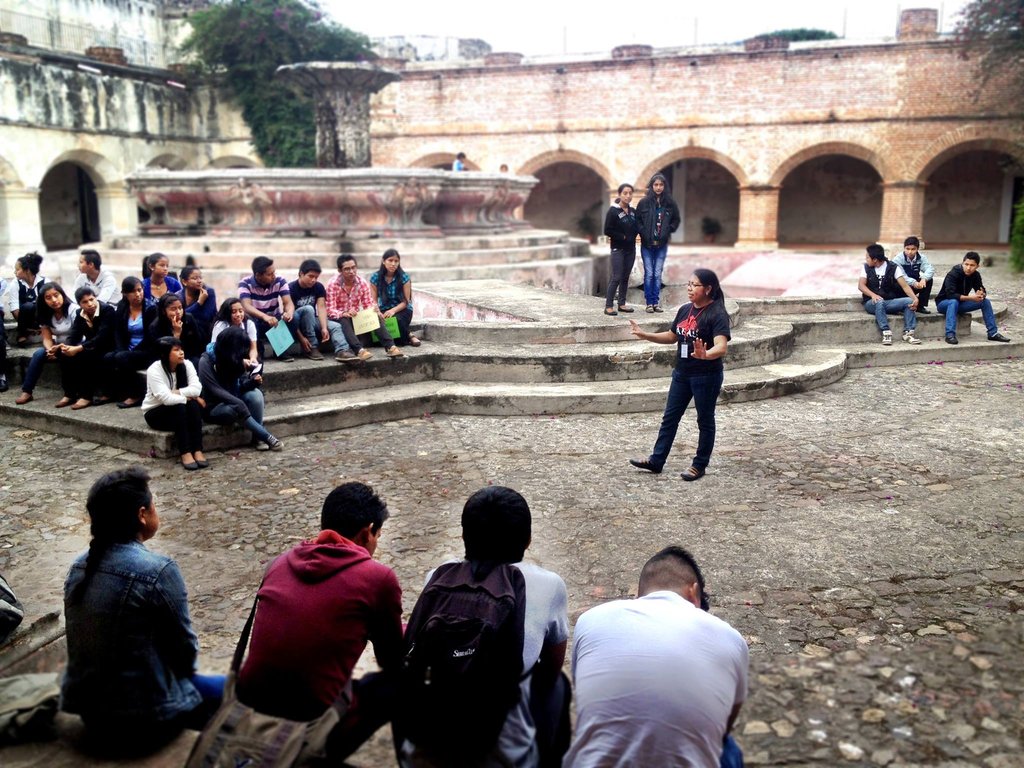By Sally Parmelee | Development Coordinator
It is widely acknowledged in the world of sexual and reproductive health that young people require a separate, unique approach when it comes to delivering education and services. There are many barriers young people face concerning access, such as judgement from their communities, families, and/or health care providers, limited or incorrect knowledge, and cost of services/transportation. Some of their key concerns are privacy and confidentiality, followed by quick in and out service. So how do we provide youth friendly services?
First we look at the context. In Guatemala the statistics relating to youth vary from region to region and amongst different populations, such as indigenous versus non indigenous groups. Petén has the highest teenage pregnancy rate in all of Guatemala. Alta Verapaz faces the highest number of maternal deaths in adolescents, with 44% of adolescents giving birth before age 20, and 29% of those births unplanned. More astounding, nearly 50% of Guatemalan women give birth before age 20. And even though 83% of sexually active women between ages 15 to 19 have stated they do not intend on having children within 2 years, only 18% are using effective contraception. These different local situations within the same country necessitate strategies that are aware of the structural barriers and easily adaptable.
For WINGS, the strategy to ensuring adolescents have access to youth friendly services has been peer outreach with strong community support. In many rural, indigenous, and low-income communities throughout the country, few young women and men continue studying past middle school. Take the north for example, nearly 85% of adolescent girls do not complete junior high school which means their access to vital information regarding their health and their rights is extremely limited. Our Youth Leader projects in Alta Verapaz and Petén recognize the limited access to social and educational spaces and trains young women and men to be leaders in their communities who share knowledge about reproductive risk, rights and advocacy, gender inequality, and sexual identity with their peers. Youth leaders develop and offer informal talks to vulnerable peers in their communities, creating safe spaces for adolescents to address stigmatized topics, including sexual violence and ‘machista’ norms, in addition to helping their peers access our youth-friendly health promoters and mobile clinics for their specific sexual and reproductive health needs. These leaders become trusted and reliable sources of information who simultaneously build their self-esteem and become advocates for reproductive rights at the community level.
Using peer outreach this year we can reach 3,600 marginalized youth through informal talks and provide services to a minimum of 450 marginalized youth.
Early this year, WINGS hired its youngest staff members, a 17 year old and an 18 year old who are working as Assistants in the Sierra del Lacandón Park in Petén. Together Dalila and Hector support 20 youth leaders from 10 communities, promote family planning clinics, and seek new ways to engage young men and women to think about their health and their futures: “We see these young mothers and have to remember that they are still girls. Instead of toy dolls, they are now taking care of real dolls. They’re kids taking care of kids. That’s why our work is so important.”
For Dalila, this is more than just a job, it’s about her community’s wellbeing. As one of five siblings and one of the few to have stayed in her small community along the Mexican border, Daly as she’s known, has different plans. “I just started studying social work this year in Santa Elena [the provincial capital]. I want to understand the problems we face, at the root, and fix them.” Daly makes the arduous 8 hour journey to study every Saturday morning and travels daily on dirt roads between communities providing both informal and formal workshops, counselling, and support to youth leaders.
Our youth leaders and young staff members continue to awe us with their commitment to their communities and we are fortunate to have the opportunity to train more youth throughout the country. In June, we were invited by a local NGO Education for the Children Foundation to work with their high school and college scholarship students. Our team organized and led a dynamic activity during the Foundation’s Annual Sexual Education Congress on the topic of 'Responsible Parenthood'. It was a fantastic opportunity to work with a group of young men and women who all have overcome many difficulties to continue their education and break from the cycle of poverty.
WINGS is working hard to ensure young people in Guatemala have access to information and services about sexual and reproductive health that understand their needs and meet them. Moreover, we are increasingly moving towards linking sexual and reproductive health to livelihoods, in order to create long term sustainable change. We encourage our youth leaders and their peers to identify what they want for themselves, what is available within their communities, and what tools they need to fulfill their plans.
Project reports on GlobalGiving are posted directly to globalgiving.org by Project Leaders as they are completed, generally every 3-4 months. To protect the integrity of these documents, GlobalGiving does not alter them; therefore you may find some language or formatting issues.
If you donate to this project or have donated to this project, you can receive an email when this project posts a report. You can also subscribe for reports without donating.
Support this important cause by creating a personalized fundraising page.
Start a Fundraiser

